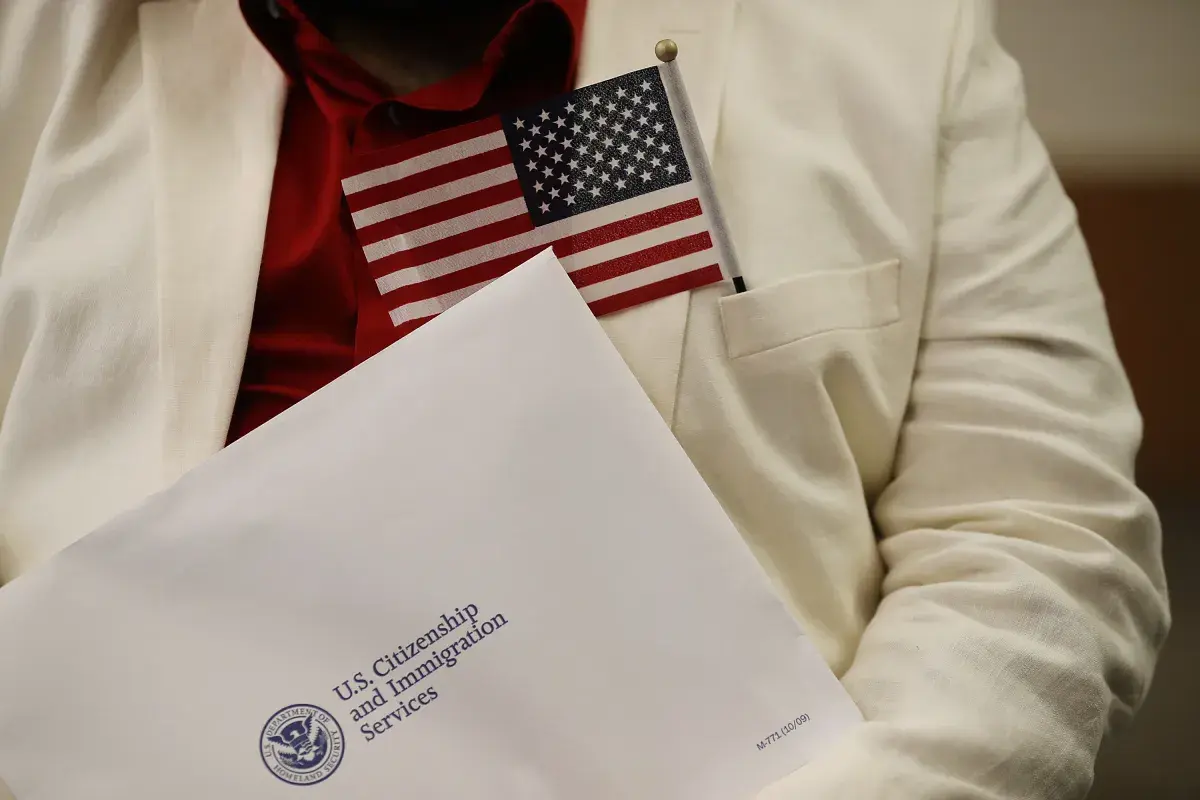
The U.S. Citizenship and Immigration Services (USCIS) said it is now permitting states to run citizenship checks through its Systematic Alien Verification for Entitlements (SAVE) program using a person’s name and the last four digits of their Social Security number, rather than requiring a full nine-digit SSN, according to a press release.
The SAVE program is a federal service run by USCIS that allows government agencies to verify an individual’s immigration or citizenship status. Originally designed to determine eligibility for public benefits, the system is now also used by states to confirm voter citizenship and maintain accurate voter rolls.
Why It Matters
The change is designed to make it easier for states to confirm whether people on voter rolls are U.S. citizens, part of a broader federal effort to strengthen what the Trump administration has described as election integrity. It comes amid a nationwide Republican push to tighten voter ID laws and highlight the rare instances of noncitizen voting, with several states set to decide ballot measures on those issues Tuesday. Supporters say the new verification option will help states confirm citizenship and protect elections from potential fraud, while critics contend it addresses a problem that is exceedingly rare and could make voting more difficult for eligible Americans.
What To Know
Election offices that sign a memorandum of agreement with USCIS and register as SAVE users can now open verification cases using a full or partial Social Security number, including just the last four digits, together with name and date of birth, according to USCIS and the Federal Register notice formalizing the change.
USCIS reports that state voting agencies have submitted roughly 46 million voter verification queries and federal agencies about 110 million benefit-related queries this year, for more than 205 million total status verification checks as of October 2025. Those figures are agency-reported and have not been independently audited. How any potential mismatch is handled—whether a registrant is contacted, asked for documents, or removed from rolls—is governed by state law, local election procedures, and the terms of each agreement with USCIS.
Only states that sign a memorandum of agreement with USCIS can use the tool for voter checks—USCIS says about 26 states already have or are pursuing such agreements. That means use will not be uniform nationwide and remains governed by state law and the terms of each agreement.
For most voters, the change will have no effect unless a verification check identifies a possible mismatch. If a record is flagged, state election officials, not USCIS, decide how to respond, which could include contacting the voter, requesting documentation, or updating the voter registration. State procedures vary, and federal verification data serves only as a reference for state decision-making.
The move also aligns with an Executive Order signed by President Donald Trump earlier this year, which the White House says aims to strengthen verification of voter citizenship and prevent foreign interference in U.S. elections. Under the order, the Election Assistance Commission is tasked with requiring government-issued documentation to confirm U.S. citizenship on voter registration forms.
Federal agencies, including the Department of Homeland Security, the Social Security Administration, and the Department of State, are directed to provide states with access to databases that can verify the eligibility and citizenship of individuals registering to vote. The attorney general is instructed to prioritize enforcement of laws against noncitizen voting and related offenses, using federal records and coordinating with state attorneys general.
The change means states can now verify citizenship information without requiring a Department of Homeland Security identifier or full Social Security number, streamlining the process for election officials.
For election offices, the ability to use only the last four digits of a Social Security number may speed routine audits and batch checks of voter rolls, reducing the number of incomplete matches that previously required additional data. The change could lessen manual follow-up work in some cases, though it may also produce more preliminary matches that need to be reviewed.
What People Are Saying
“USCIS remains dedicated to eliminating barriers to securing the nation’s electoral process,” USCIS spokesman Matthew Tragesser said in a press release. “By allowing states to efficiently verify voter eligibility, we are reinforcing the principle that America’s elections are reserved exclusively for American citizens. We encourage all federal, state, and local agencies to use the SAVE program.”
Midsouth HR Consulting and Notary Services wrote in a post on LinkedIn: Agencies and organizations are increasingly leveraging federated services and identity-verification tools to validate eligibility, access, and status. For recruiters—especially those working in education and public-sector talent acquisition like me—this means: Expect increased scrutiny around identity, status, and compliance for candidates (particularly international hires or foreign-national candidates). Be prepared to interface with external verification systems when onboarding or verifying eligibility for roles tied to public benefits or public-service employment.
